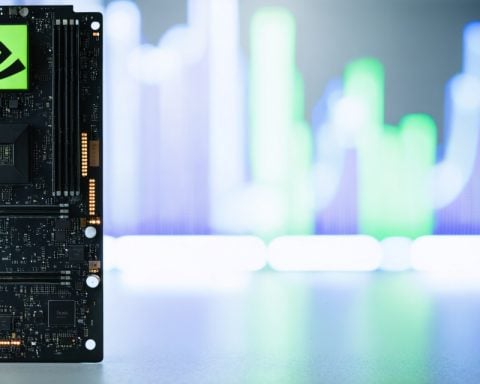- Mercedes-Benz is testing a revolutionary lithium-metal solid-state battery in its EQS sedan, starting February 2025.
- This battery technology replaces liquid electrolytes with a solid medium, enhancing safety and energy density to 450 Wh/kg.
- The new battery could enable EVs to travel over 620 miles on a single charge.
- Mercedes AMG and Factorial Energy are collaborating on this innovative project aimed at sustainable transportation.
- An innovative floating cell carrier design, with pneumatic actuators, accommodates material expansion during charge cycles, improving performance and longevity.
- The solid-state battery offers higher energy efficiency and reduced weight, potentially surpassing traditional lithium-ion cells.
- Rigorous road testing by Mercedes aims to elevate automotive standards and push the boundaries of electric mobility.
- This development signals significant advancements in safer and more powerful EV technologies, reshaping the future of automotive innovation.
Picture a world where electric vehicles (EVs) zoom endlessly down highways without frequent stops to recharge. Mercedes-Benz edges closer to making this vision a reality by testing a trailblazing lithium-metal solid-state battery in its luxurious EQS sedan. This venture, kickstarted in February 2025, is the fruit of a dynamic partnership between Mercedes AMG and U.S.-based Factorial Energy, heralding a new era in sustainable transportation.
This cutting-edge battery swaps traditional liquid electrolytes for a solid medium, which not only promises a seismic shift in safety but also integrates lithium-metal anodes, radically boosting energy density to a stunning 450 watt-hours per kilogram. The result? Imagine driving over 620 miles on a single charge, experiencing a newfound freedom on the road.
Behind this technological marvel, a team of engineers has crafted a novel floating cell carrier. This ingenious design navigates the natural expansion and contraction of materials during charge cycles, with pneumatic actuators paving the path to enhanced performance and longevity.
The implications are vast. Solid-state batteries, renowned for their transformative potential, challenge the supremacy of traditional lithium-ion cells by achieving higher energy efficiencies while trimming weight. This could redefine standards across the automotive industry, ushering in cars that are both safer and more powerful.
Mercedes-Benz’s relentless pursuit of excellence continues as it subjects the new technology to rigorous road testing. This marks a pivotal moment not just for Mercedes, but for the entire electric mobility landscape. With each mile, the quest for a sustainable, electrified future accelerates, leaving us to ponder: how far will this new battery technology take us? Prepare for a journey that could reshape the very fabric of automotive innovation.
Revolutionizing Electric Vehicles: How Solid-State Batteries Could Change the Game
Features and Specs of Solid-State Batteries
Solid-state batteries are hailed as the next frontier in battery technology, particularly in the automotive industry. Here are some notable features and specs that these batteries promise:
– Higher Energy Density: Up to 450 watt-hours per kilogram compared to traditional lithium-ion batteries, which typically offer about 250-300 Wh/kg.
– Increased Range: Potential driving range exceeding 620 miles on a single charge.
– Enhanced Safety: Solid electrolytes reduce risks of leaks and fires, providing a safer alternative to liquid electrolytes.
– Longevity: Improved lifecycle due to reduced degradation from charge and discharge cycles.
How-To: Optimize Your EV for Maximum Range
1. Maintain Optimal Tire Pressure: Regularly check and maintain tire pressure to reduce rolling resistance.
2. Moderate Speed: Driving at moderate speeds instead of high acceleration can improve efficiency.
3. Use Regenerative Braking: Utilize regenerative braking where possible to recover energy back to the battery.
Real-World Use Cases
– Long-Distance Travel: With an increased range, EVs with solid-state batteries could favorably compete with combustion vehicles for long-distance travel without the anxiety of frequent recharging.
– Fleet Vehicles: Businesses could adopt these vehicles into their fleet for lower operating costs and longer service intervals.
Market Forecasts & Industry Trends
According to market analysts, the global solid-state battery market is expected to grow significantly over the next decade. Bloomberg New Energy Finance predicts that solid-state batteries could capture a significant market share by 2030, mainly because of their potential to offer higher performance in a sustainable manner.
Security & Sustainability Insights
Replacing liquid electrolytes with solid materials improves the safety of batteries by reducing the chance of leakage and fires. Furthermore, solid-state batteries can potentially use more abundant and less environmentally damaging materials, enhancing sustainability.
Controversies & Limitations
While promising, solid-state technology isn’t without its hurdles:
– Manufacturing Challenges: Scaling production of solid-state batteries is complex and costly.
– Material Constraints: Sourcing enough lithium-metal and other required materials could present challenges.
Pros & Cons Overview
Pros:
– Enhanced safety and efficiency
– Greater energy density leading to extended range
– Slower degradation improving battery life
Cons:
– High production costs
– Technological hurdles in mass production
– Limited raw materials for lithium-metal anodes
Quick Tips for Prospective EV Buyers
– Stay Informed: As the technology develops, keep abreast of updates in battery technology which might influence your purchase decision.
– Consider Total Ownership Costs: Evaluate the long-term costs of owning such technology over just the initial purchase price.
For comprehensive vehicle insights, visit the Mercedes-Benz website.
By understanding the capabilities and limitations of solid-state technology, consumers and industry stakeholders can make informed decisions as the automotive landscape evolves. Embrace this cutting-edge innovation; it could not only transform your driving experience but also lead to a greener planet.














